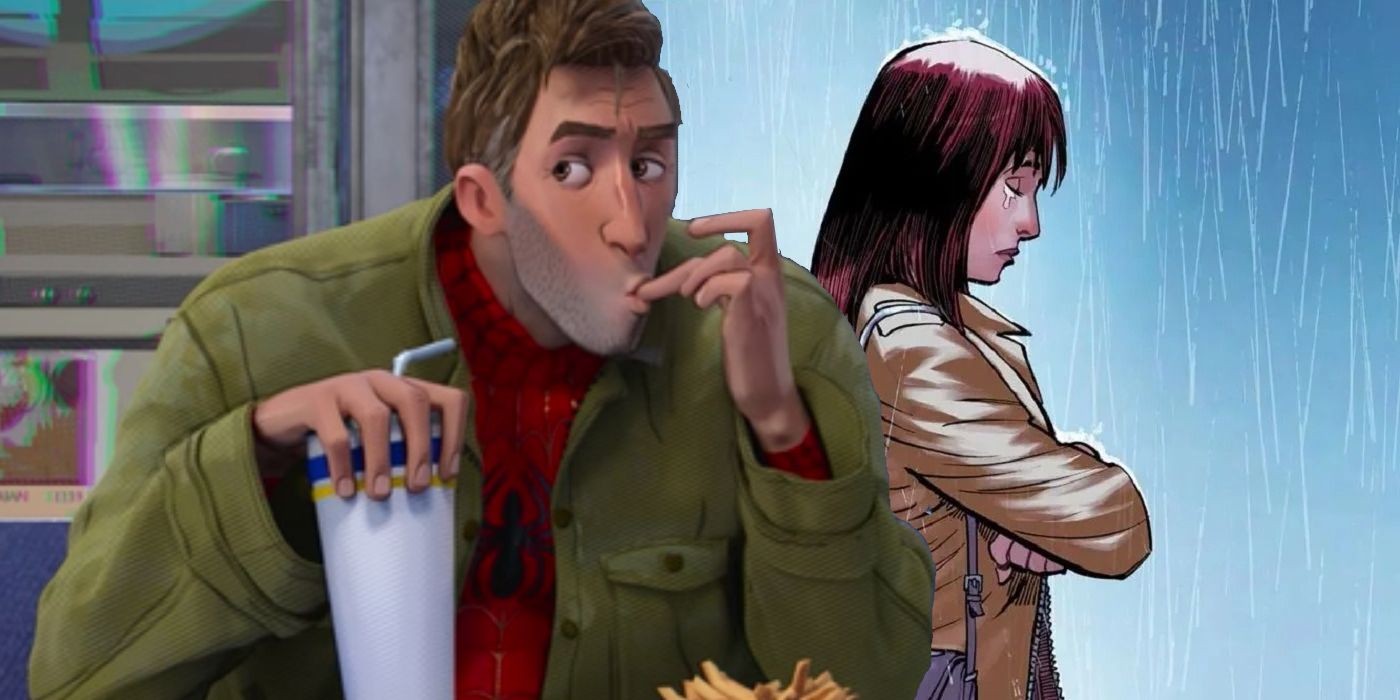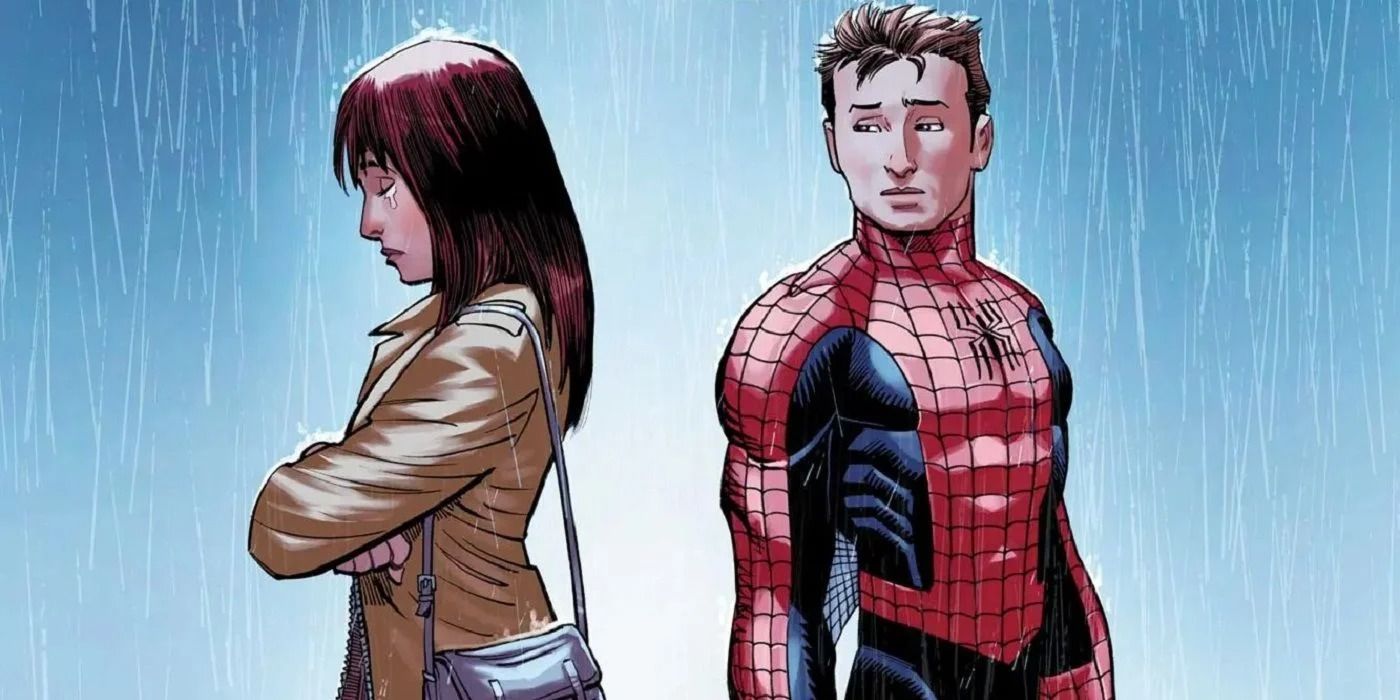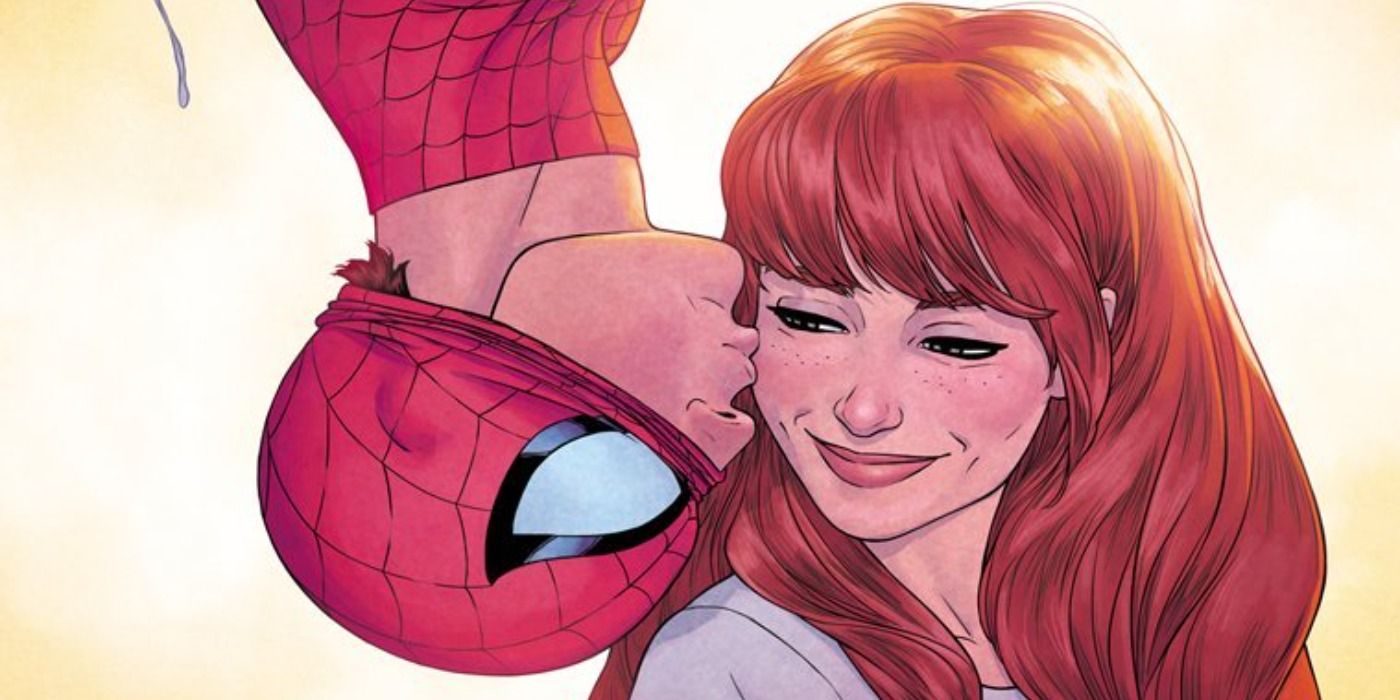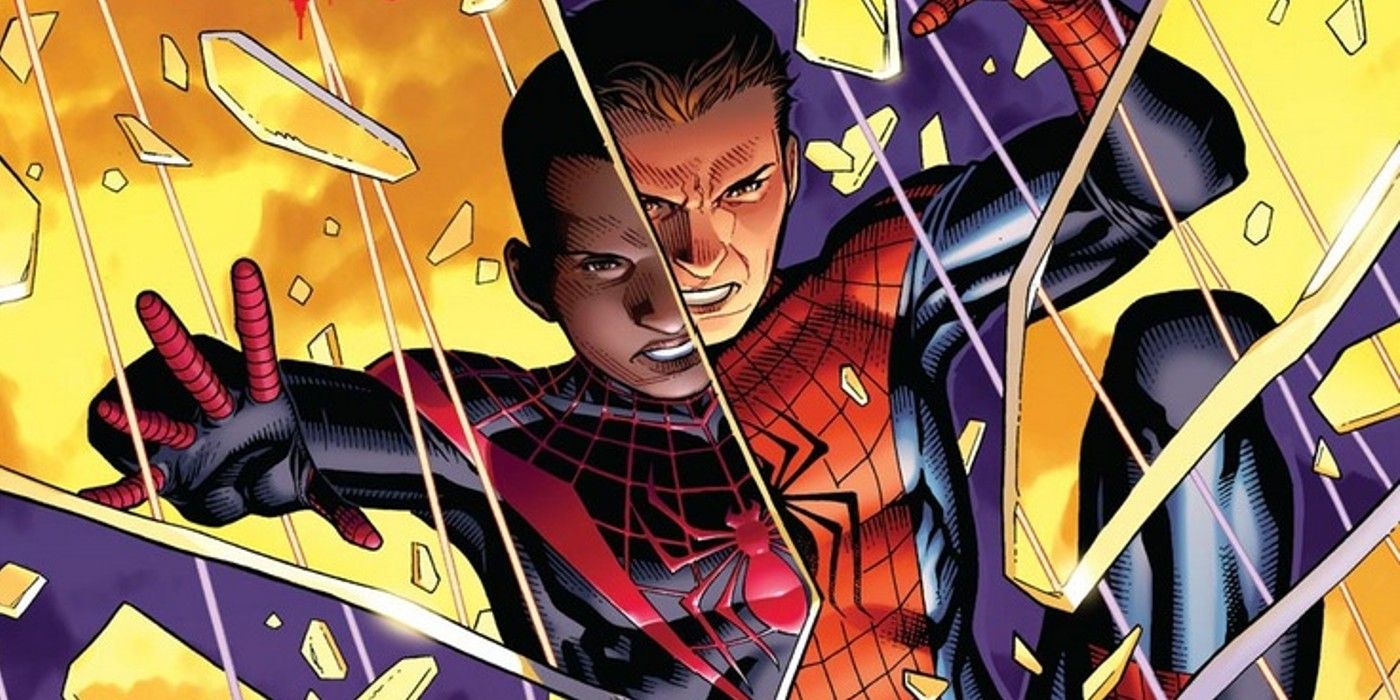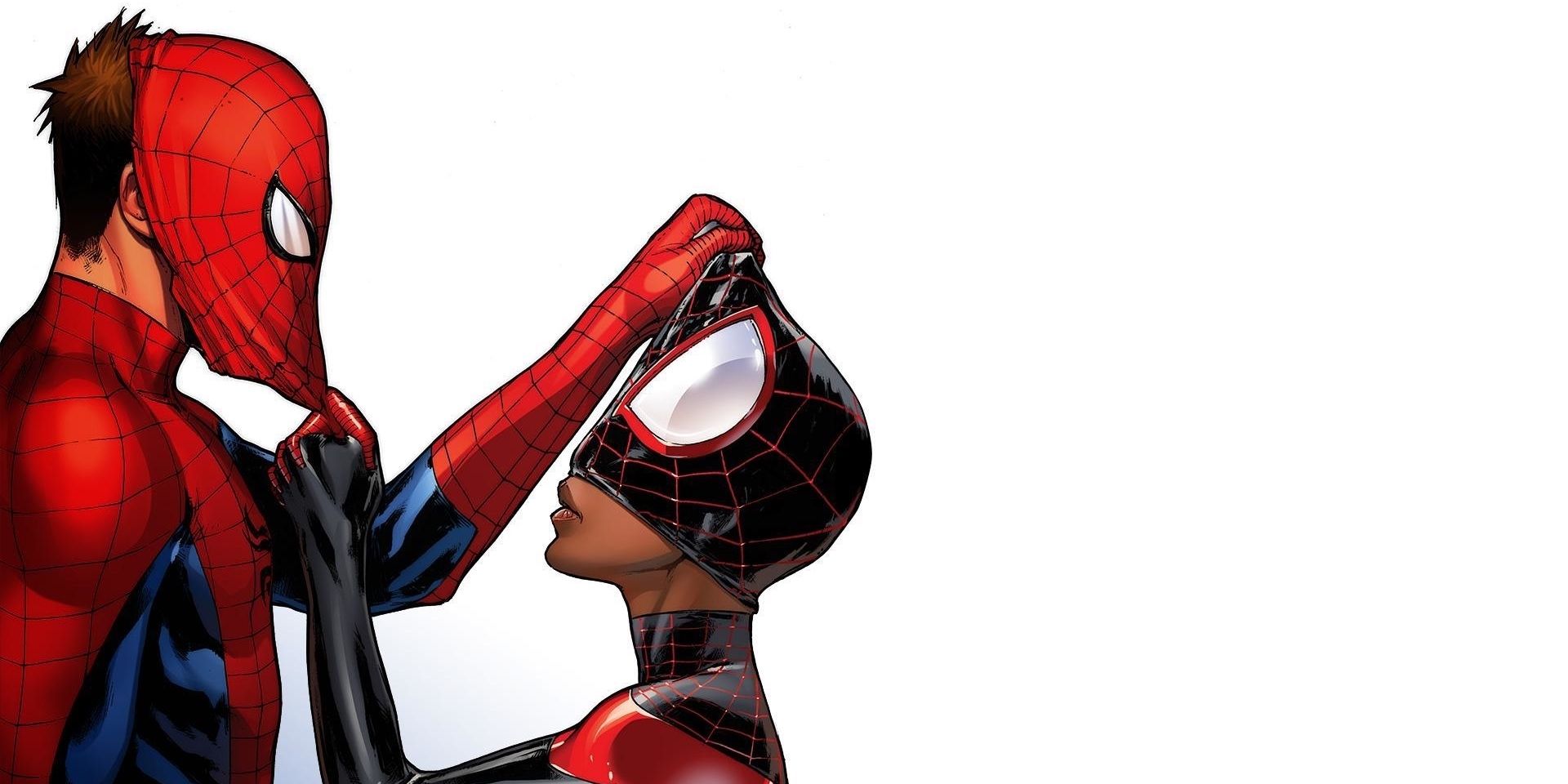Marvel Comics is ignoring the lessons of Spider-Man: Into The Spider-Verse with its treatment of Spider-Man and his love interests. It's a good time to be a Spider-Man fan. On the big screen, Tom Holland's iteration of Peter Parker has essentially become the face of the MCU, with Spider-Man: No Way Home breaking $1 billion in the global box office - in spite of the continuing global pandemic, a remarkable achievement. That fan-pleasing blockbuster even saw Tobey Maguire and Andrew Garfield return as their own respective Spider-Men, courtesy of the multiverse. Meanwhile, Sony's plans to build a universe of Spider-Man spinoffs look set to be another remarkable success, with Tom Hardy leading the charge as Venom.
But one of the most delightful hits of the last few years was the animated film Spider-Man: Into the Spider-Verse, essentially a meditation on the legacy of Spider-Man. This focused not upon Peter Parker but instead upon Miles Morales' Ultimate Spider-Man and Gwen Stacy's Spider-Gwen, celebrating the idea of Spider-Man as the ultimate "Everyman Hero." Delighting critics, it won an Academy Award for Best Animated Feature, and at least two more films are in the works.
Spider-Man: Into The Spider-Verse may have been a celebration of Spider-Man, but it actually had quite an edge - with several subplots making quiet criticisms of the comics themselves. Surprisingly, the latest twists in Marvel's Spider-Man saga suggest the comic book publisher simply hasn't taken those criticisms on board. The editors of the Spider-Man franchise would do well to put Spider-Man: Into The Spider-Verse on play and pay attention.
Marvel's Spider-Man Just Won't Grow Up.
Marvel is teasing a break-up between Spider-Man and MJ, who are swiftly becoming Marvel's ultimate on-again/off-again couple. The timing is particularly irritating coming so soon after Nick Spencer's run, which finally got them together again as a solid couple after years of hints and teases, and featured various romantic subplots that it never delivered on; one in which Peter Parker considered asking Mary Jane to marry him, and another that seemed to be setting up a course-correction on the controversial "One More Day" arc that split them up in the first place. It's entirely possible the solicit is being deliberately misleading, but the negative response it's receiving suggests another potential superhero breakup story just isn't resonating with viewers.
Curiously enough, Spider-Man: Into The Spider-Verse directly addressed this issue in the character of Peter B. Parker, a depressed, down-on-his-luck version of Spider-Man drawn into Miles' reality who tried to serve as a mentor figure. Peter B. Parker's greatest issue was his inability to commit; for all he loved Mary Jane, he could never be real with her, and his fear of having children drove them apart. "Did you know that seahorses mate for life," he reflected sorrowfully. "Could you imagine a seahorse seeing another seahorse and then making it work?" This was a pretty pathetic version of Spider-Man - and then, surprisingly, Sony turned Peter B. Parker into a shot across Marvel Comics' bows when they revealed this Spider-Man originated from Earth-616. As any comic book reader knows, that's the designation Marvel Comics typically use for their prime universe. The film's writers literally turned Peter B. Parker into a warning for Marvel that Spider-Man is headed down that depressing direction, and they need to do a course-correct.
The Problem Lies With The Illusion Of Change
The core problem lies with an idea Stan Lee called the "Illusion of Change." The idea is that every superhero is a success because at heart they embody a core idea, and that deviating too far from this risks damaging the brand permanently. As Peter David explained it in Comic Book Buyers' Guide #1285, with reference to Spider-Man: "Peter went from high school to college," he pointed out, "but he was still a student. Betty Brant and Liz Allen gave way to Gwen Stacy and Mary Jane Watson, and nemesis Flash Thompson stepped aside for nemesis Harry Osborn... It was evolution, but 360 degrees' worth. Same old Spider-Man, same old Peter Parker, same old problems at the core."
In 1987, Marvel allowed Peter Parker and Mary Jane Watson to marry. Writers and editors immediately seem to have regretted this, recognizing it was a massive change to the Spider-Man mythology, and throughout the '90s they desperately tried to figure out how to break them apart - even apparently killing MJ off at one point. Finally, in 2007 the two were split apart in the controversial "One More Day," which erased the entire marriage from Marvel Comics continuity after Spider-Man struck an uncharacteristic deal with the Devil. But, because the relationship between Peter Parker and Mary Jane remained too attractive to writers, it wasn't long before MJ drifted back into Spider-Man's life - and the current status quo is an unending cycle of their getting back together, or almost doing so, and then breaking up, time and again. It's wearying, and by this point it's turning into a depressing commentary on Marvel's unwillingness to commit to change.
Marvel's Spider-Man Woes Affect Other Heroes Too
In a recent interview with AiPT, Marvel Comics editor Jordan T. White couldn't resist comparing Marvel's Spider-Man to DC's Superman. "I think it’s kind of a bummer that Superman has aged so much that he’s now a married guy with a son," he observed. "And I know that some people want Spider-Man to be that and I’m glad he’s not because it changes the character from being someone you can relate to into someone who is like your dad... A Spider-Man who is married, growing up with a kid — of course, I can relate to that because I’m a married grown-up with a kid. But I don’t know that that’s fair to the world and to culture, to say I want Spider-Man to grow up with me." While it's important to note White isn't involved with the Spider-Man editorial team, he nonetheless seems to be accurately representing Marvel's position. He just doesn't seem to be realizing that Peter Parker's inability to change and grow is actually damaging to the character, especially in an unending will-they/won't-they relationship. Stan Lee's Illusion of Change has essentially become a doctrine that is never questioned.
But Marvel's reluctance to allow Peter Parker to grow up has an even greater impact for legacy heroes like Miles Morales. It's no coincidence that Miles Morales was originally created in the Ultimate Universe, a line of comics set in an alternate universe where writers were allowed to be a lot bolder. The Ultimate line rejected the Illusion of Change, allowing writer Brian Bendis to kill off Peter Parker so a new hero, inspired by Peter but different to him, could step into his shoes as the Ultimate Spider-Man. Miles Morales was a phenomenal success, allowing a whole new generation of readers to see themselves in the Spider-Man mythos, and he was able to shine precisely because he occupied a space Peter Parker no longer filled. Then, in 2015, Marvel Comics absorbed Miles into the main universe, meaning he once again existed alongside Peter Parker - and ever since then he's felt like a second-stringer compared to the real deal. Because Peter Parker cannot grow, Miles Morales can never really fulfill his potential either, and nor can other members of the Spider-family such as Spider-Gwen.
Spider-Man: Into The Spider-Verse subtly comments upon this as well, with the decision to base its version of Miles Morales on the original concept from the comics. In the animated movie, Miles Morales is the Spider-Man who took over when Peter Parker was gone, who filled the gap left when the original Spider-Man was killed. He's only at the beginning of his career, but he's growing into the role nonetheless, and by the end of Spider-Man: Into The Spider-Verse he's accepted into the ranks of the Spider-Verse's greatest heroes. But in the comics, he can never be allowed to shine in the way he does on the big screen, simply because Marvel refuses to institute real change by allowing Peter Parker to grow up.
Marvel's greatest failure in this matter is their inability to recognize that change can be good. Jordan T. White argued that every generation deserves to be able to relate to Spider-Man, and he's absolutely right; but Spider-Man is bigger than Peter Parker. By allowing Peter to move on and grow, they create opportunities for other characters to fill the gap they have left. Meanwhile, other readers can relate to Peter Parker in a different way - as a father figure rather than a teenage friend, as part of a married couple who work through the hard times, as a different kind of everyman hero. Marvel's current approach diminishes Spider-Man, whereas this one would allow the entire franchise to grow and flourish. Unfortunately, at present there are no signs Marvel is willing to take it.
Source: AiPT

